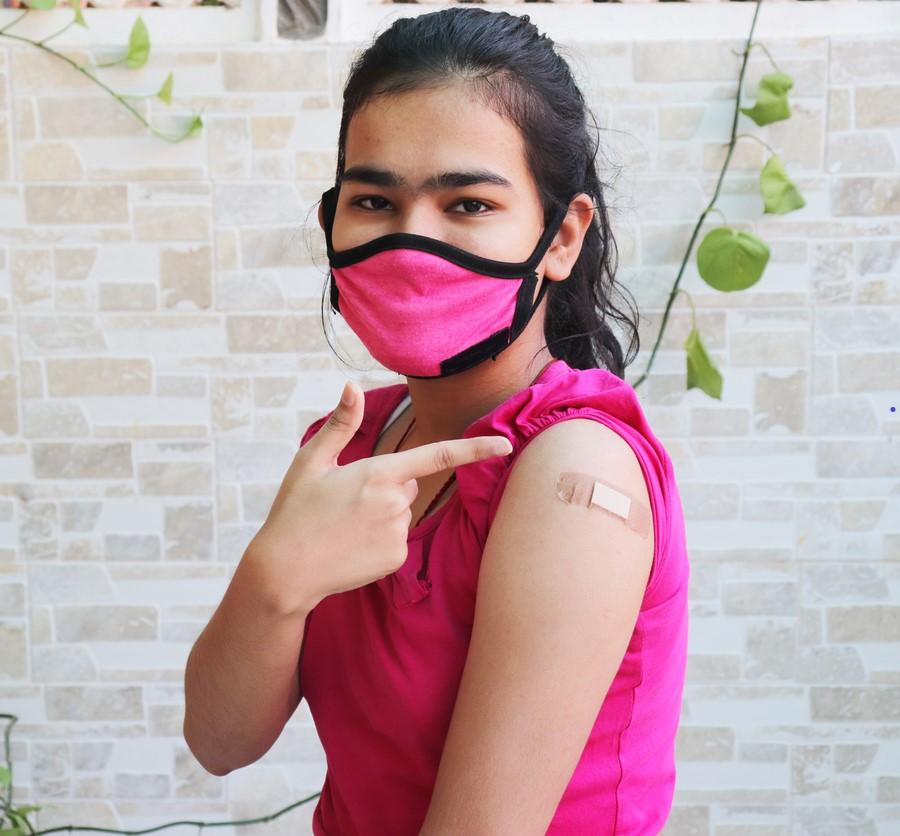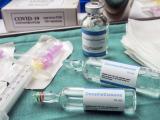Multisystem inflammatory syndrome in children (MIS-C) is rare among 12- to 20-year-olds who have received COVID-19 vaccination, a study yesterday in The Lancet Child & Adolescent Health suggests.
The study was based on 9 months of follow-up data on US children and young adults ages 12 to 20 who had received at least one dose of the Pfizer-BioNTech COVID vaccine from Dec 14, 2020, to Aug 31, 2021.
Only 21 cases out of more than 21 million vaccinated adolescents developed the rare disorder, which mimics Kawasaki's, during the follow-up period. Fifteen of the 21 were diagnosed as having COVID-19 despite vaccination, while 6 developed MIS-C for unknown reasons.
"Our results suggest that MIS-C cases following COVID-19 vaccination are rare and that the likelihood of developing MIS-C is much greater in children who are unvaccinated and get COVID-19. COVID-19 vaccination is recommended for everyone aged 5 years and older in the United States for the prevention of COVID-19," said Anna R. Yousaf, MD, the lead author and a researcher at the Centers for Disease Control and Prevention (CDC), in a Lancet press release.
No deaths, 12 ICU admissions
Of the 21 patients, all were admitted to the hospital, with 12 requiring admission to the intensive care unit (ICU). None died, and the median hospital stay was 7 days.
Of those who developed MIS-C, 11 received one dose and 10 received two doses of the vaccine before MIS-C onset. Median time from dose to hospitalization was 8 days for those who had received one vaccine dose and 5 days for those who had received two.
The rate of 1 case per 1 million vaccinated adolescents is significantly lower than the rate of 200 MIS-C cases per million in unvaccinated children infected with SARS-CoV-2, the authors said.
In the 6 cases of MIS-C in the study that occurred in children who had gotten the vaccine but had no evidence of SARS-CoV-2 infection, the authors said they were unable to determine if the vaccine contributed to the development of MIS-C, or if there were other reasons for the illness, such as other unrecognized conditions.
According to the CDC, there have been 59 deaths from MIS-C linked to COVID-19 infections, and 6,851 cases since surveillance began in May 2020. The average age of an MIS-C patient in the Untied States is 9 years, 60% of patients are male, and 59% of cases have occurred in children who are Latino or Black.
MIS-C remains mysterious condition
Though most pediatric COVID-19 infections are mild and self-limiting, MIS-C has confounded clinicians since the beginning of the pandemic. MIS-C usually appears 2 to 6 weeks after COVID-19 infection, and it can cause major organ failure. Initial symptoms often include fever, rash, eye redness, and gastrointestinal complications.
In a commentary on the study, Joyce Chang, MD, MSCE, and Mary Beth Son, MD, both of Boston Children's Hospital, write that the study is reassuring.
"As COVID-19 vaccines were being introduced to the paediatric population, there were fears that vaccination could induce a hyperinflammatory response akin to MIS-C," they said. "Concerns about post-vaccination MIS-C stemmed from uncertainties surrounding MIS-C's immunopathogenesis."
Instead, Chang and Son say the study results offer assurance that the vaccines do not trigger MIS-C in children. More work will be needed to track MIS-C in children age 5 to 11 years who were approved to get vaccinated just as this study came to an end.
"In evaluating individuals with a MIS-C clinical presentation after COVID-19 vaccination," the study authors concluded, "it is important to consider alternative diagnoses, and anti-nucleocapsid antibody testing might be helpful.… Our findings suggest that MIS-C without evidence of SARS-CoV-2 infection is rare after COVID-19 vaccination."





















